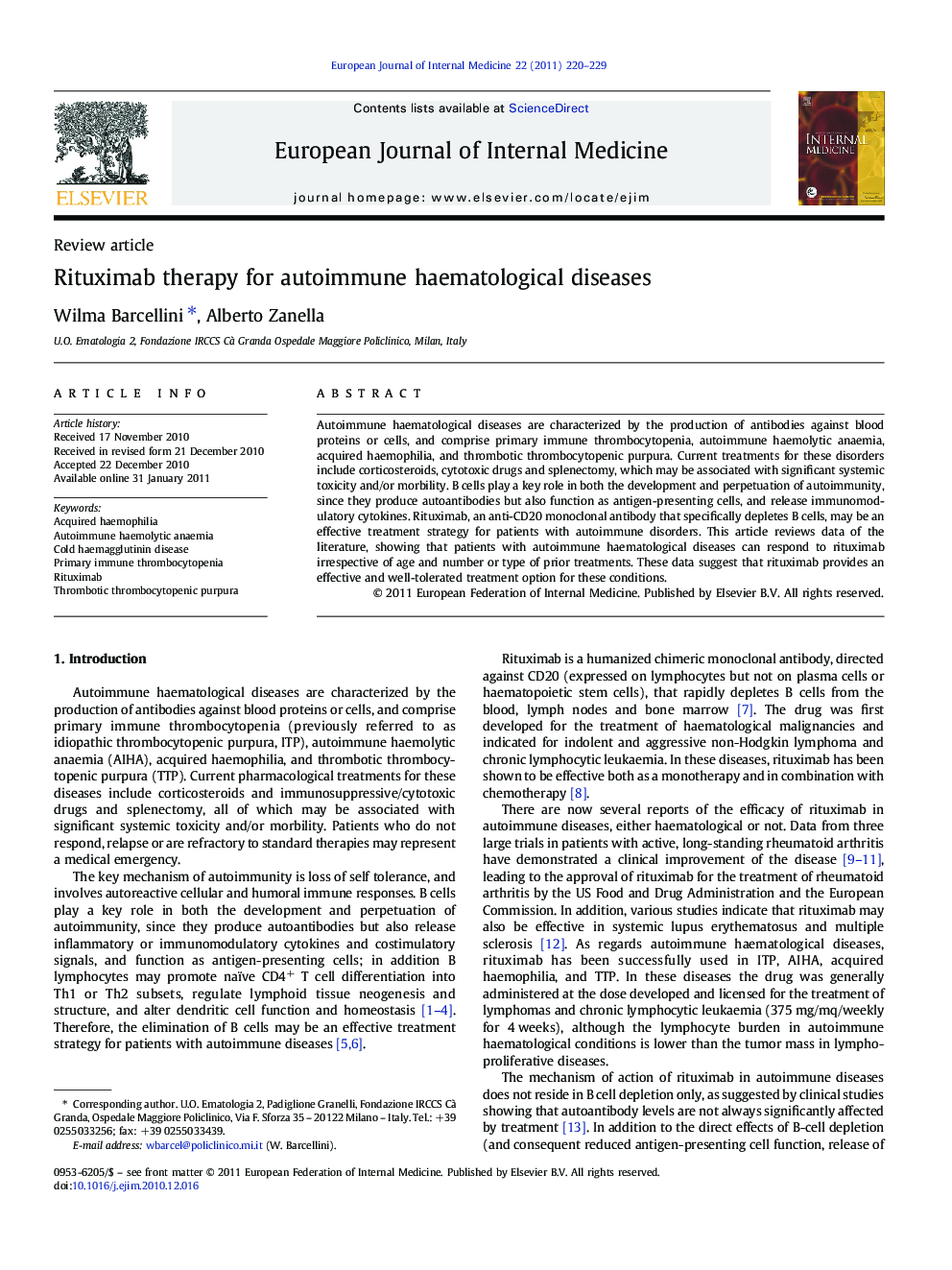| Article ID | Journal | Published Year | Pages | File Type |
|---|---|---|---|---|
| 3468079 | European Journal of Internal Medicine | 2011 | 10 Pages |
Autoimmune haematological diseases are characterized by the production of antibodies against blood proteins or cells, and comprise primary immune thrombocytopenia, autoimmune haemolytic anaemia, acquired haemophilia, and thrombotic thrombocytopenic purpura. Current treatments for these disorders include corticosteroids, cytotoxic drugs and splenectomy, which may be associated with significant systemic toxicity and/or morbility. B cells play a key role in both the development and perpetuation of autoimmunity, since they produce autoantibodies but also function as antigen-presenting cells, and release immunomodulatory cytokines. Rituximab, an anti-CD20 monoclonal antibody that specifically depletes B cells, may be an effective treatment strategy for patients with autoimmune disorders. This article reviews data of the literature, showing that patients with autoimmune haematological diseases can respond to rituximab irrespective of age and number or type of prior treatments. These data suggest that rituximab provides an effective and well-tolerated treatment option for these conditions.
